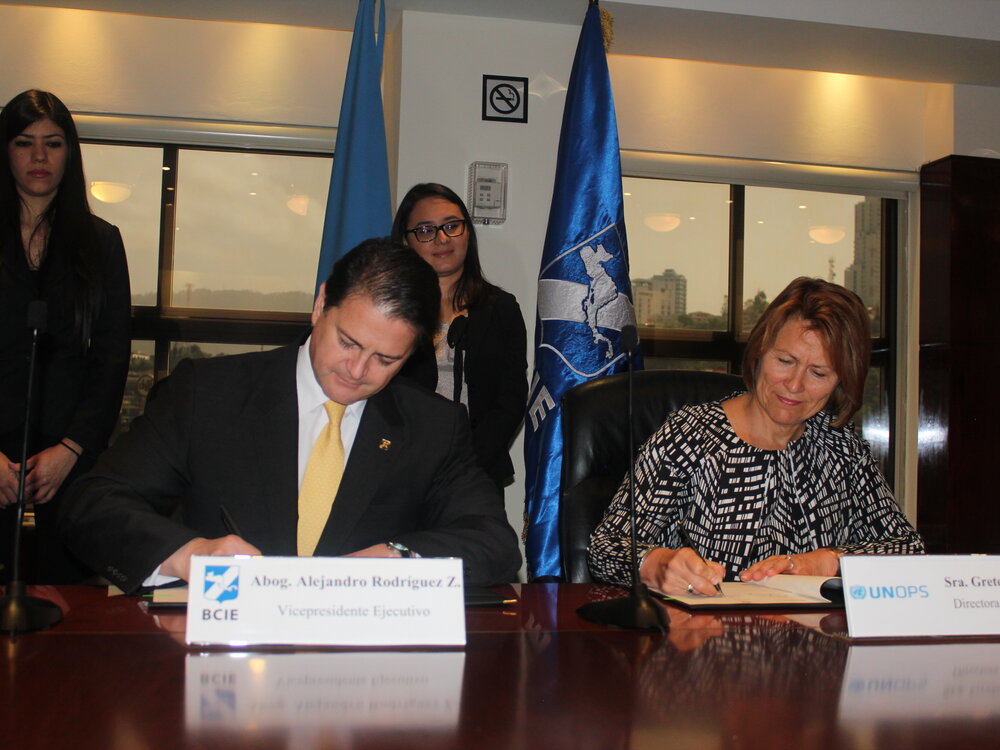CABEI and UNOPS sign cooperation agreement for effective execution of development projects

The cooperation agreement seeks to establish mechanisms for the efficient and effective execution of development projects in the public and private sectors.
Tegucigalpa, June 23, 2015. - The Central American Bank for Economic Integration (CABEI) and the United Nations Office for Project Services (UNOPS) signed a framework cooperation agreement to promote processes for the design, management and efficient and transparent execution of public and public-private projects in CABEI member countries.
The agreement will provide a new reinforced cooperation framework to facilitate collaboration between CABEI and UNOPS with regard to procurement and contracting procedures and information systems in order to improve operational supervision mechanisms, ensure the fulfillment of the Sustainable Development Goals (SDGs) and carry out supervision, monitoring and evaluation of the impact of programs and projects in the region.
The agreement, which was signed by CABEI Executive Vice President Attorney Alejandro Rodríguez Zamora and UN Deputy Secretary General and UNOPS Executive Director Grete Faremo reaffirms the commitment of both institutions to strengthening national capacities for the effective and transparent management of public infrastructure and public procurement.
Along these lines, CABEI Executive Vice President Attorney Alejandro Rodriguez emphasized that this type of alliance with key actors such as the UNOPS allows the Bank to be more effective and to improve its impact on development. The alliance will enable CABEI to better collaborate with its member countries in the execution of programs and projects.
The CABEI/UNOPS alliance has a history of over 20 years. Over the years, it has provided professional expertise, execution norms and procedures and streamlined and transparent contracting mechanisms.
This new agreement involves three areas of cooperation: Knowledge Management; Alliances for Development Action; and the Regional Integration Process. Jointly sponsored activities will be undertaken, including training and socialization of lessons learned with regard to the design, formulation, execution and evaluation of programs and projects of both institutions. In addition, the agreement involves working together with key actors in Central America, such as governments, civil society and the private and social sectors to promote the integration of efforts and dissemination of information in order to achieve the SDGs and to foster human development in a context of regional economic and social integration.




